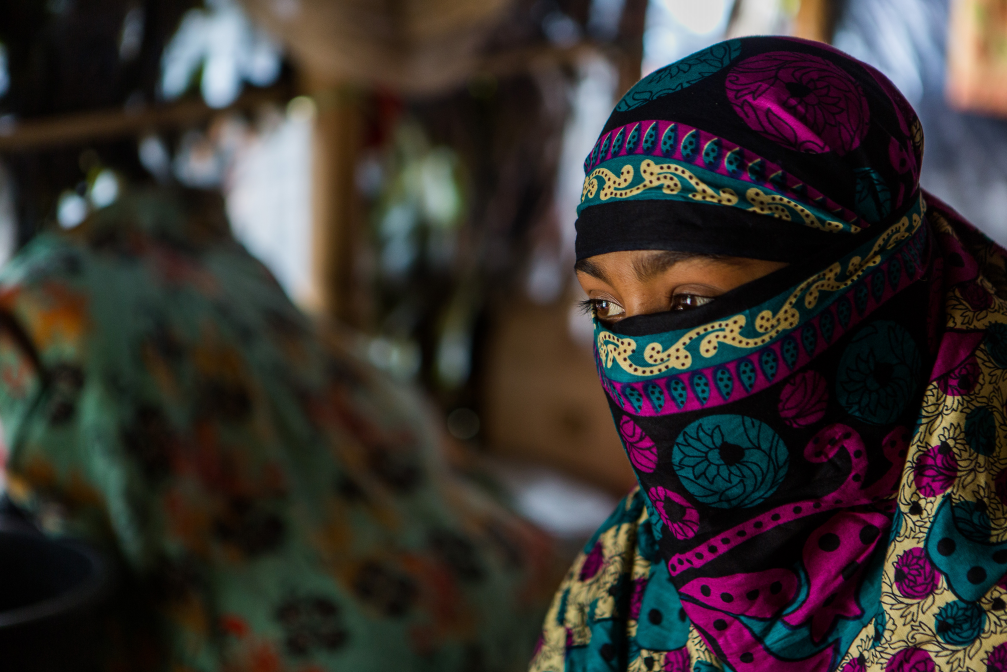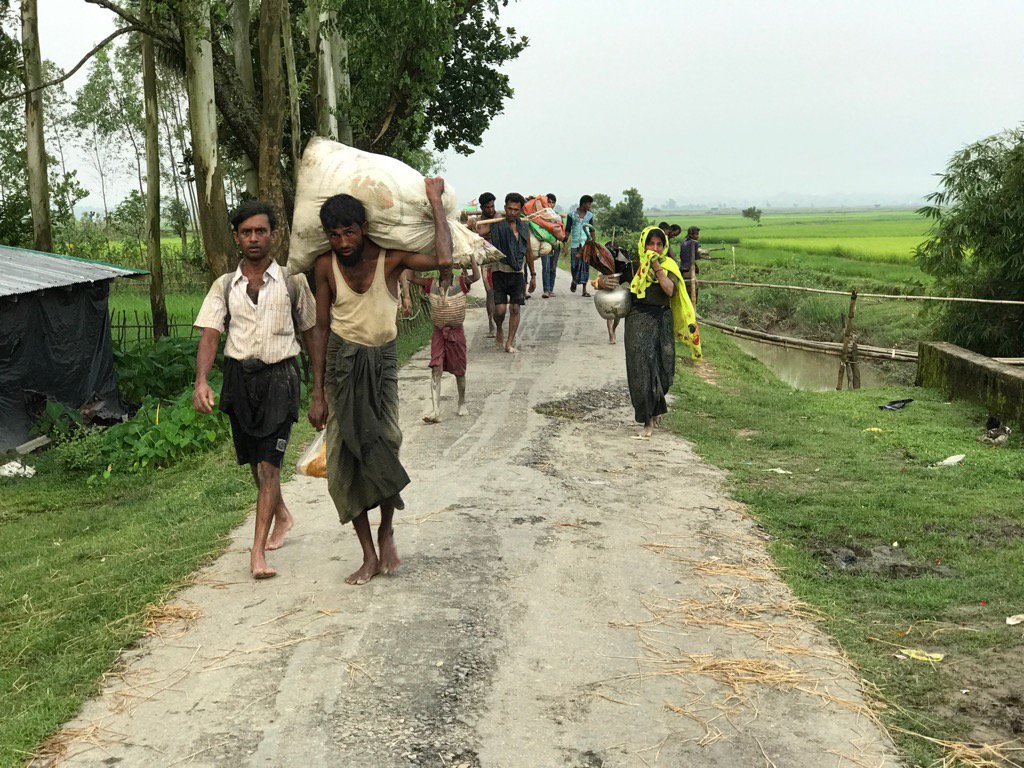This article was published more than 7 years ago.

Over the past month, Burmese military forces have intensified their scorched-earth campaign against the Rohingya by burning villages, looting homes, killing residents, and forcing nearly half a million people in northern Rakhine State to flee their homes and seek refuge in neighboring Bangladesh. The counterinsurgency campaign is a response to attacks on police posts by the militant group, Arakan Rohingya Salvation Army (ARSA).
The Rohingya, who are predominantly Muslim, have lived in Burma for hundreds of years, but the government does not consider them citizens, or even refer to them by name. The Rohingya face systematic discrimination in education, employment, public health, housing, religious activity, movement, and family life.
A grantee of the Fund for Global Human Rights since 2015, Fortify Rights has been one of the few organizations able to document and publicize what the head of the UN’s human rights agency called “a textbook example of ethnic cleansing.” The government of Burma, also known as Myanmar, has restricted independent access of journalists, human rights organizations, and aid workers to the area. It has also sought to control the language domestic media and aid workers use to describe what is happening, instructing them not to use “insurgent” but rather the officially sanctioned “extremist Bengali terrorist.”
Countering the Anti-Rohingya Narrative
Taking the lead from the government’s tone, most domestic media and even civil society have joined in the nationalist, anti-Rohingya fervor, conflating the ARSA insurgents with all Rohingya people and calling for their forced removal from the country. Government propaganda, going back decades, has cast the Rohingya as interlopers from Bangladesh. Those who speak out against the atrocities or express sympathy for the Rohingya face targeted threats, harassment, and worse.
In mid-September, the Karen Women’s Organization, another Fund grantee, took the very brave step of issuing a press statement condemning the military actions against Rohingya civilians. As an organization that works with women affected by armed conflict inside Karen state, KWO recognized their own experiences in the emerging stories of sexual violence, burning villages, and civilians fleeing for their lives. While the pattern of violence may seem clear, for many Burmese, the nationalist, anti-Rohingya rhetoric is deeply embedded — blinding them to the the real human suffering that is taking place.
The Nobel Prize laureate Aung San Suu Kyi, once a prominent dissident and now a civilian government leader in Burma, has failed to criticize the military directly, instead condemning violence on all sides, citing “allegations and counterallegations” of human rights violations. Given the unrelenting violence inflicted by the Burmese authorities on the Rohingya, such false equivalency is either naïve or disingenuous, and it adds fuel to the fire of nationalist anti-Rohingya sentiment.

Speaking Out Despite the Risks
In light of this onslaught of dehumanizing propaganda, several groups, including Fund grantee Women’s Peace Network Arakan, are monitoring the abuses and quietly supporting efforts of journalists and aid workers to gain access to the displaced populations as well as informing policymakers about the local context.
With strong local and international networks, the work of Fortify Rights has been particularly noteworthy. Founded by Matthew and Amy Smith, the group has been working tirelessly to expose the abuses against the Rohingya and mount international pressure against the Burmese government to stop the attacks. Fortify Rights has also condemned the August 25 killing of 12 officials by Rohingya militants with ARSA and have documented how ARSA members have killed civilians.
The organization recently interviewed more than 50 survivors of state-sponsored attacks in Rakhine State in Burma and published details of their experiences. The witnesses, representing 17 villages, described “mass killings and arson attacks by the Myanmar Army.”
As the interviews make clear, the violence against the Rohingya has been brutal. One man, a 27-year-old survivor from Chut Pyin village, witnessed armed residents from a nearby village working in concert with the Myanmar Army, killing Rohingya civilians. He told Fortify Rights: “Some people were beheaded, and many were cut. We were in the house hiding when [armed residents from a neighboring village] were beheading people. When we saw that, we just ran out the back of the house.”
Fortify Rights has engaged policymakers at the highest levels on the situation, including briefing the U.N. Security Council and testifying before Canada’s Parliament just a few weeks ago as well as testifying before the U.S. Congress earlier. Fortify Rights has also played a very public role to expose these atrocities and push forward recommendations. The Wall Street Journal published an op-ed authored by Fortify Rights’ Human Rights Specialist Puttanee Kangkun in January and Matthew Smith has appeared on CNN and NPR. Facing threats because of their work, Fortify Rights has continued to stand in solidarity with the Rohingya publicly. For many domestic actors, especially in the Rakhine State, speaking out would be too dangerous.
Fleeing for Safety, Facing More Challenges
The hundreds of thousands of Rohingya who have been forced to flee their homes in the past few weeks are in serious need of humanitarian aid and protection. Half of the refugees are children. Images of the harsh conditions experienced during their journey have drawn sympathy from the international community, but because of local political conditions, they still have little access to food or medicine, and face extensive violence from Burmese military personnel.
The refugee camps in Bangladesh, the primary landing point for the Rohingya, are squalid and cripplingly under-resourced. There were an estimated 400,000 people living in the camps before the most recent influx, which has more than doubled their size.
“Bangladesh should open the border to refugees and coordinate with humanitarian organizations to prepare for a large influx,” Matthew Smith said in early September. “It’s imperative that Bangladesh allows refugees across the border to avoid a further loss of life.”
The Bangladeshi government recently said it would set up 14,000 additional shelters near the border with Burma.
Your contribution to the Fund for Global Human Rights unlocks the power of activists like these. Make a gift today and invest in a world where people have the power to secure – and enjoy – their rights to equality, justice, and dignity.


